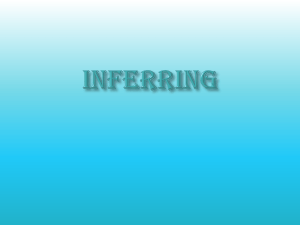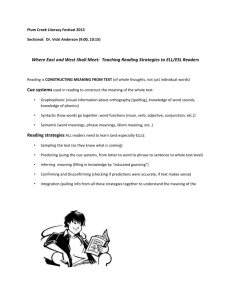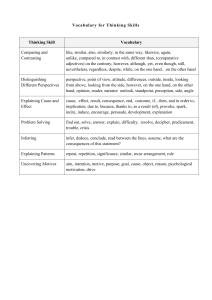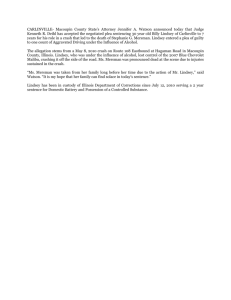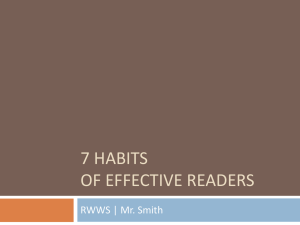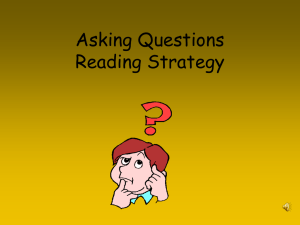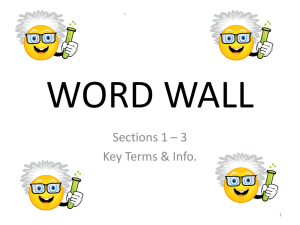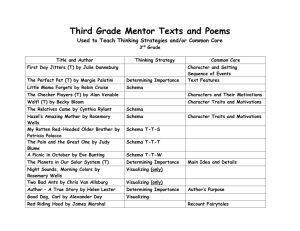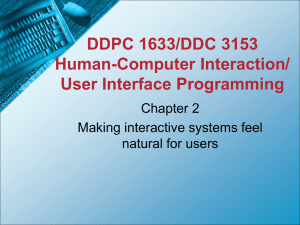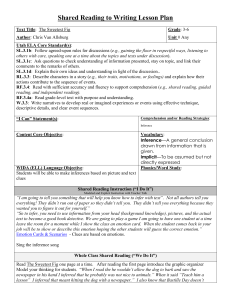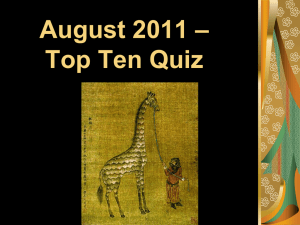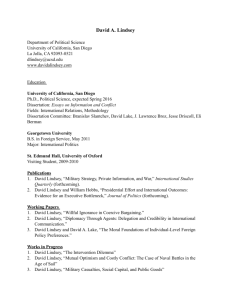ppt - Computer Science - University of Colorado Boulder
advertisement
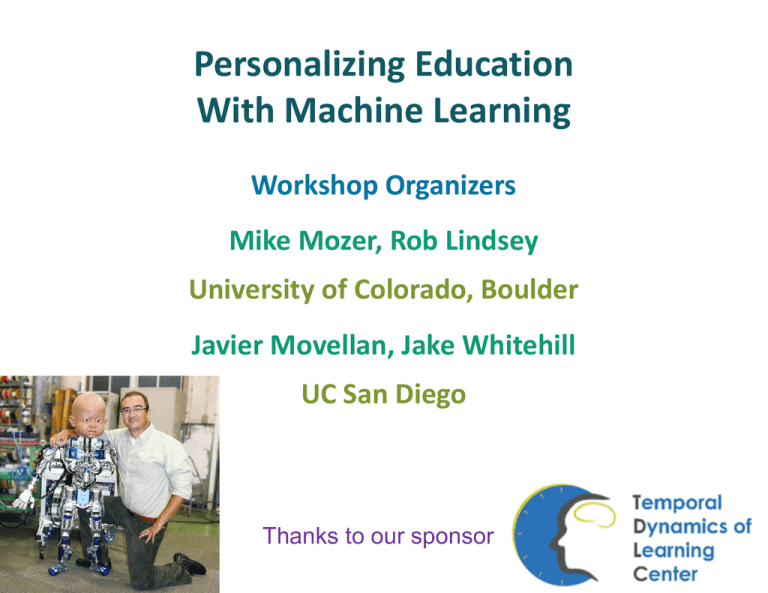
Personalizing Education With Machine Learning Workshop Organizers Mike Mozer, Rob Lindsey University of Colorado, Boulder Javier Movellan, Jake Whitehill UC San Diego Thanks to our sponsor Distinguished Commentators Doris Alvarez Director, TDLC Educator’s Network Founding principal, UCSD Preuss School Harold Pashler Psychology, UCSD Participants Academic Departments Cognitive Science Computer Science Education Electrical Engineering Philosophy Psychology Research Organizations and Companies Coursera.org Mycollegefn.org Nexus Research and Policy Center Scientific Learning Socos LLC Why Education And Machine Learning? Schedule Overview Morning Talks Optimal teaching Detecting engagement and affect with computer vision MOOCs Afternoon Talks Latent state inference Posters All of the above topics Latent concept inference Inferring student roles in online discussion forums Morning Schedule 7:45 Jerry Zhu A computational teaching theory for Bayesian learners 8:10 Emma Brunskill Pedagogical activity selection: Drawing insight from sequential decision making under uncertainty 8:35 Jacob Whitehill A stochastic optimal control perspective on affect-sensitive teaching 9:00 Break and poster session 9:30 Min Chi Empirically evaluating the application of reinforcement learning to the induction of effective and adaptive pedagogical strategies 9:45 Vikram Ramanarayanan A framework for automated analysis of videos of informal classroom educational settings 10:00 Andrew Ng The online revolution: Education for everyone Break Presenters are invited to lunch at noon courtesy of Stateline brewery? Hard rock café? Videotaping If you’re willing to have your video put on the web, sign release form Rajnish Kumar techtalks.tv Afternoon Schedule 15:30 Richard Scheines Machine learning, causal model search, and educational data 15:55 April Galyardt Modeling student strategy usage with mixed membership models 16:15 Anna Rafferty Using inverse reinforcement learning to diagnose learners’ misconceptions 16:40 Yanbo Xu A dynamic higher-order DINA model to trace multiple skills 17:00 Break and poster session 17:20 Vivienne Ming, Norma Ming Inferring conceptual knowledge from unstructured student writing 17:40 Andrew Waters Learning analytics via sparse factor analysis 18:05 Robert Lindsey Inferring history-dependent memory strength via collaborative filtering: Toward the optimization of long-term retention
